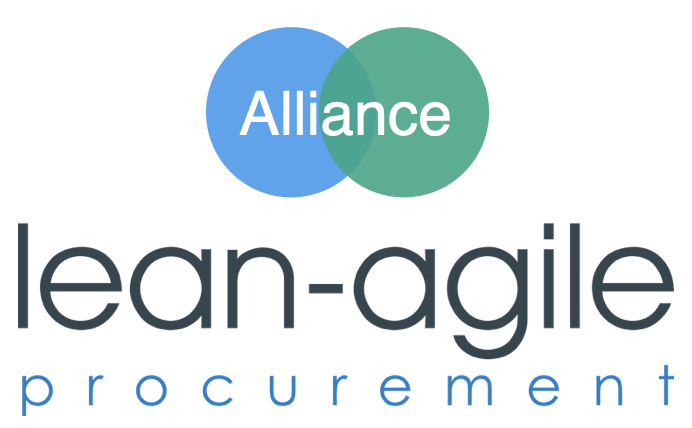
Contract Types
Service Subscription
Service Subscription Contract
Characteristics
Category
Iron Triangle
In a Service Subscription contract, the scope matches an existing service so that time, quality and cost are fixed.
Agile Contract?
Service Subscription Contracts can be considered Agile contracts because, if the subscription period is short, they allow for quick changes to the service. However, these contracts typically offer limited flexibility in influencing the scope of the service, as the features and benefits are usually predefined and standardized.
A Service Subscription Contract is a traditional agreement ideal for transactional relationships where the scope matches an existing service.
Buyers Perspective
Example
An example of a Service Subscription contract is a monthly subscription to a mobile plan. The service provided is predetermined, offering a specific set of features and benefits. Changing the scope would mean to sign up for another servcie.
Also known as
Service Level Agreement, Service Plan, Subscription Service Agreement, Membership Plan, Recurring Service Contract
Vendors Perspective
From the vendor's perspective, a Service Subscription Contract is highly advantageous. It provides scalability, consistent delivery of established services with minimal risk, and predictable revenue streams. The primary risk lies in potential early termination of the contract, which could result in overhead costs. Additionally, a significant risk is the temptation to customize a standardized service to satisfy individual customer demands, potentially leading to an unmanageable array of services.
The scope, costs, and quality are fixed and correspond to a predetermined service. This arrangement offers the buyer a clear understanding of what they will receive and the associated costs. Typically, payments are made at regular intervals, helping to optimize cost forecasts and reduce risk.
In this type of contract, the buyer may have to forgo additional needs, as the services are standardized and predefined. The key advantage is the quick setup, enabling immediate delivery of business value.
Optimal if
A Service Subscription Contract is ideal when offering a standardized service with consistent delivery over time, catering to regular customer needs. It works well for businesses focusing on building long-term customer relationships and ensuring steady revenue streams. This model is particularly effective in scalable markets, such as software as a service (SaaS), media streaming, and utilities.
Challenges
Customer Churn: Maintaining customer retention can be challenging, especially if customers perceive better value elsewhere, leading to subscription cancellations.
Standardization vs. Customization: Balancing the need for standardized offerings with customer demands for customization can be difficult, potentially leading to scope creep and increased complexity.
Price Sensitivity: Subscribers may be sensitive to pricing changes, making it challenging to adjust rates without risking customer dissatisfaction or loss.
Service Quality Consistency: Ensuring consistent service quality across all subscribers can be difficult, especially as the customer base grows and diversifies.
Scalability Issues: While scalability is an advantage, managing the infrastructure, support, and resources required to scale effectively can present challenges.
Competition: The market for subscription services can be highly competitive, requiring continuous innovation and value addition to stay ahead.
Billing and Payment Management: Efficiently managing billing cycles, payment processing, and handling issues like late payments or payment disputes can be complex.
Regulatory Compliance: Navigating and adhering to various regulatory requirements, especially in different regions or industries, can be a challenge for subscription-based services.
Advantages
Predictable Revenue Streams: Regular subscription payments provide a stable and predictable revenue flow, aiding financial planning and stability.
Scalability: These contracts allow for easy scalability, as vendors can add new subscribers without significantly increasing operational costs.
Customer Loyalty: Subscription models encourage long-term customer relationships, fostering loyalty and providing opportunities for upselling and cross-selling.
Lower Customer Acquisition Costs: Once established, subscription services can reduce the need for constant customer acquisition, as the focus shifts to retention and customer lifetime value.
Efficient Resource Management: Standardized services streamline operations, allowing for efficient use of resources and easier management of service delivery.
Data Insights: Ongoing relationships with subscribers provide valuable data and insights into customer behavior and preferences, enabling better service personalization and product development.
Barrier to Entry: A well-established subscription base can create a barrier to entry for competitors, as loyal customers are less likely to switch providers.
Flexibility for Customers: Subscriptions often offer customers flexibility, such as easy upgrades, downgrades, or cancellations, enhancing customer satisfaction and retention.
Want to know more?
Get in touch
Kickstart your contracting by a template for this contract type.
Get Certified
To access Premium Content you need to upgrade to the Premium Membership. We also offer to buy selected Premium Contents individually.



